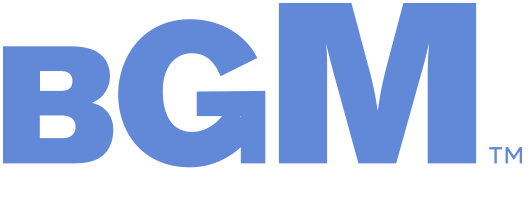I caught up with Boston growth marketer Rustin Nethercott, who runs growth marketing at Appcues. He's already done some amazing things over there, but primarily, Rustin has helped transform growth marketing into an acquisition-positive program. In addition, his findings have helped to shape a better experience for Appcues users.
How did you become interested in growth marketing?
I fell into growth marketing before I had any idea what to call it. I was working in Content Marketing at Constant Contact, but was always less interested in output for the sake of output, and more drawn towards driving leads and customers in a measurable way. I spent a lot of time diving into conversion numbers, and brainstorming ways to optimize content to generate more trials. I was also doing a bit with email lead nurture, SEO, design, and paid facebook ads, all of which I’ve been able to apply to much of the growth work I do at Appcues.
I also have a background in research psychology, which made it easier to conceptualize growth experiments and account for external variables sneaking in.
How do you describe your job to a stranger? Why?
I focus on helping potential customers see the value in Appcues, converting visitors into customers throughout different stages of their journey.
What type of personality do you think is best suited for growth marketing?
On the Appcues marketing team, we talk a lot about how some people are more “shippers” while others are “polishers”. Shippers tend to push things out quickly even if they aren’t 100% perfect. Polishers take their time and focus mainly on quality.
I tend to think that growth marketers should lean a bit more on the “shipper” side of things. Unless you have the taste of Steve Jobs, you’re probably going to be wrong a lot of the time. Rather than put all their eggs in one basket, a lot of the growth marketers I look up to prefer to move quickly, make mistakes, and emphasize learning. It would be hard to make a career in growth marketing with a risk-averse personality.
There are a lot of other traits I tend to see in growth marketers. The good ones are analytically inclined, but they problem-solve in creative ways. Going for the data-proven ‘sure things’ will only get you so far. At some point, growth marketers need to be able to test unproven, outside-the-box experiments.
What are top three areas you have the most expertise in?
Conversion Rate Optimization, Content Strategy, and Consumer Psychology.
How early in your life can you tie interests or experiences back to these 3 things you’re great at?
My father is a professional writer and my mother is a psychologist, so Content and Consumer Psychology seem pretty traceable. Conversion Rate Optimization comes from a love of psych research that developed in college.
How do you stay authentic to your goals and your values as a marketer?
Being a marketer in 2018 is vastly different from a moral standpoint that it was even a decade ago. Before, you had such limited access to your target audience that marketers were forced to be pushy and somewhat underhanded. Now, as long as you have a halfway decent product, odds are there’s people somewhere in the world who are looking for exactly what you deliver. With the internet, reaching these people is easier than it’s ever been. The role then becomes less “How can I manipulate this group to buy from me?” and more “How can I best connect with my target audience and position my product in a way that lets them clearly see the benefit that they are looking for?”
How do you plan your career? How far out do you look on the horizon for planning?
I tend to plan all the way down the line, but things have always shifted. My heart was set on being a research psychologist, then a PR professional, then a digital strategist, then a content marketer, and now a growth marketer. I’m a big proponent of concrete future planning, while always being prepared and willing to shift things as soon as the previous plan isn’t in your best interest. Too many people stick to a plan long past the point that it’s benefiting them for the sake of consistency.
Why Appcues?
I applied to Appcues on a whim, and it’s one of the 3 best decisions I’ve ever made. Coming from a family of artists, work was always thought of as extension of life, not just an 8-hour black hole in one’s day that had to be endured, simply to finance the other 8 waking hours. I feel extraordinarily privileged to work at a job that I enjoy as much as the time I spend not working.
Everything about working at Appcues has far exceeded my expectations. The team here is not only comprised of some of the most clever and passionate folks I’ve had the pleasure of knowing, but they genuinely care about their customers in a way that I have rarely seen before. There is a level of pride that everyone takes in their work that makes the team a joy to be around.
What are some of the goals you’re working on now?
I’m working towards increasing sign-ups in a meaningful way. I’m slowly realizing that to hit some of my goals, it will take larger-scale experiments and some big shake-ups.
On a more general level, I’m just trying to build my skills and become the best marketer that I can be. I’ve always found happiness and self-efficacy to be closely correlated. I’m hoping to continue learning the craft. Specifically, I’ve been focused most recently on increasing my skills in data analysis and demand generation.
On the personal side, I’m trying to do more of less. That means putting all effort towards the important things (family, friends, work, girlfriend) and letting myself say no to everything else. It requires a lot of discipline that I’m still working towards, but about 80% of my happiness comes from these four things. The other 20% comes from Boston sports.
Tell me about high-volume growth tests and what’s working and not working?
One test I’m running right now involves creating an Appcues product experience on our homepage, to let visitors try something representative of our product without having to give up any personal information until after they’ve seen the value. Was hoping that this would be a magic bullet to skyrocket sign-ups, but to be honest I haven’t seen that yet. That’s a lot of this role though - getting excited about experiments, but also never becoming too attached that I let my optimism influence data interpretation.
Is growth marketing here to stay? Where is the industry headed? What’s next?
The industry is always going to be shifting, but the mindset of fast experimentation and an emphasis towards growth and learnings doesn’t seem to be going anywhere.
In Boston, who do you think the most interesting companies are in terms of what they’ve done, or are doing, with their growth marketing programs?
I’m always impressed with how Hubspot's growth program continues to evolve and produce. They realized that their big lever for growth was in-product experiments, so they built a whole team around that. Rachel Leist and her team have done a really remarkable job.
You can find Rustin on Linkedin.



